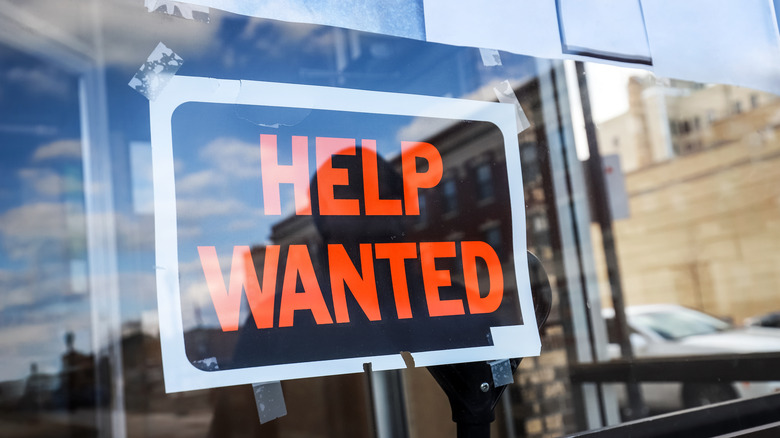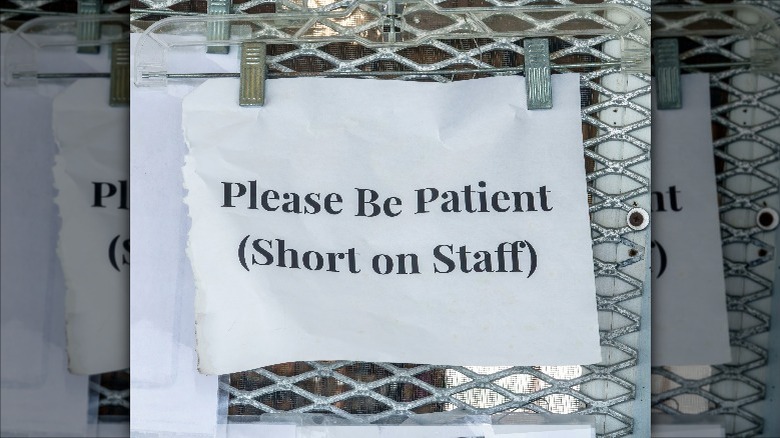Why Restaurants May Still Struggle To Find Employees In 2022
One of the key findings in the National Restaurant Association's report on the state of the restaurant industry in 2022 is that a majority of restaurant operators surveyed expect the "labor shortage" to extend into at least 2023. This is despite another key finding that estimates the workforce in the industry to grow by 400,000 jobs.
A more concrete detail is that 70% of these restaurants claim to be short staffed (per CNN). Furthermore, 50% believe recruiting and retaining workers will be one the major challenges of the year. These numbers are about the same as those relayed by QSR in June, and the continued flight of workers from the food service industry is probably due to the same reasons: Namely, as NPR reported, they perceive themselves as poorly paid workers in an exploitative industry who were forced to face a volatile public during a global pandemic.
As George Chen, the owner of San Francisco's China Live, put it to Eater: "A lot of these folks are probably going, 'Do I really want to do [this work that exposes me to people]? ... This virus has killed over 4 million people worldwide.' And that kind of psyche is probably going to linger." So one reason the shortage will continue is that people have chosen not to work in that area. One way this could be mitigated is to provide employment that addresses these concerns.
Compensation and health risks are factors
In a situation where there is a supposed shortage of labor, you would think that businesses would prostrate themselves before potential workers. But as one man discovered in an experiment covered by Business Insider, these businesses complain of a labor shortage while also being picky about who they hire and what they offer.
Joey Holz heard how people were apparently quitting because they received one $1,200 check and unemployment benefits. "If this extra money [from benefits] that everyone's supposedly living off of stopped in June and it's now September, obviously, that's not what's stopping them," he said. He was curious. So he applied to 60 jobs over the course of a month. These ranged from restaurants to construction. Of these, almost three-fourths didn't respond. He only got one interview.
Last October, when Fox 4 News in southwest Florida asked Professor Tom Smythe at Florida Gulf Coast University about this story, he offered two possible explanations. "I have to believe that there's skill mismatch, again either over or under qualified, or they're saying gee, if I do bring somebody on, I'm probably going to have to pay them more, and can I afford that?"
Of course, Holz's experiment is a small sampling. However, it sheds light on a second perspective on an otherwise baffling shortage of labor. Holz, says Business Insider, attributes the shortage in part to a lack of competitive pay and benefits.

